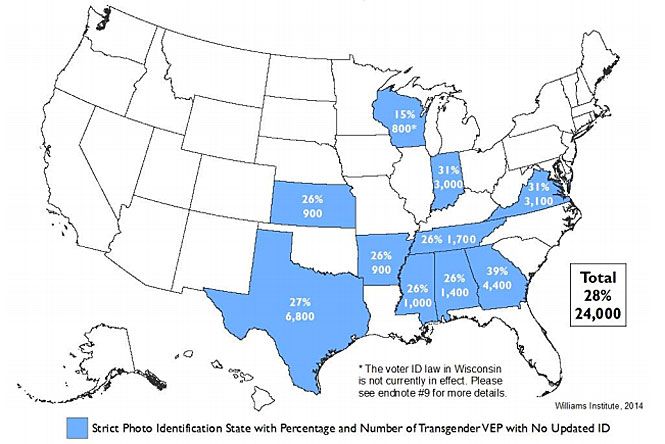Cross posted from The Stars Hollow Gazette
A North Carolina anti-election fraud group delivered a list of nearly 30,000 names to the state board of elections insisting that the names be removed from eligible voters list because, the group claims, these voters are dead. The facts are not all of these people are dead and the group, the Voter Integrity Project, had no evidence that any voted were cast by anyone using a dead person’s name.
The board began reviewing the list last Tuesday and determined that it had almost 20,000 of the names from a 10-year audit of data from the state Department of Health and Human Services, said Veronica Degraffenreid, the board’s director of voter registration and absentee voting.
More than one third of those 20,000 names were already listed as inactive, meaning they were on track for removal from the voting rolls, Degraffenreid said. Of the remaining names provided by the Voter Integrity Project, 4,946 had a match on first and last names and date of birth, Degraffenreid said, and county election boards will investigate to see if they should be removed.
She said that of all the records submitted by the organization, 196 showed voting activity after their date of death, though many of them died within days of the election and had submitted absentee ballots. [..]
Meanwhile, cases of fraud remain rare. In 2009, the board referred 29 cases of double voting to county district attorneys, according to a board report. Since 2000, the board has referred one case of voter impersonation, the report states.
Some voters were pretty upset when they received letters from their local board of elections informing them that they were no longer eligible to vote because they were dead.
Carolyn Perry remembers voting in her first election. It was 1967 in Ohio, a municipal election, and she was 21 years old.
“The people at the polls introduced me and said, ‘This is Carolyn and this is her first time to vote,'” recalled the retired special education teacher.
Perry, who has been registered to vote in North Carolina since at least 1975, according to election records, was dismayed to receive a letter this month from the Wake County Board of Elections suggesting she may no longer be qualified to vote because she might be dead.
“My initial reaction? I was mad as hell,” Perry said Monday morning. [..]
“I’ve had some people call who have been enraged,” said Gary Sims, deputy director of the Wake County Board of Elections. Others, he says, have laughed off the errant letters. That range of reactions has been seen in other states where either official actions or similar nonprofit-driven efforts have sought to purge dead voters. [..]
Gary Bartlett, director of the State Board of Elections, said state officials discovered that the Department of Health and Human Services wasn’t reporting some deaths that occurred out of state to elections officials. Those voters are now being investigated, he said.
But Bartlett adds that neither the state nor any of the county boards have yet discovered someone who voted when they should not have as a result of the Voter Integrity Project’s submission. Bartlett says he doesn’t rule out the possibility it could happen, but he points out that election officials have access to Social Security numbers, birthdays and drivers license numbers that citizen groups cannot legally get. All of those pieces of information have been used to differentiate between those who are really dead and those who are expected to show up at the polls this November, he said.
 The Williams Institute at the UCLA School of Law has released a new study, this time concerning the affects of Voter ID. The Potential Impact of Voter Identification Laws on Transgender Voters in 2014 General Election, written by Jody Herman, concludes that there could be over 24000 eligible transgender voters across ten states who will not be able to vote because of Voter ID laws.
The Williams Institute at the UCLA School of Law has released a new study, this time concerning the affects of Voter ID. The Potential Impact of Voter Identification Laws on Transgender Voters in 2014 General Election, written by Jody Herman, concludes that there could be over 24000 eligible transgender voters across ten states who will not be able to vote because of Voter ID laws. 

 Yesterday was consumed with our buying a new car. Our ’95 Saturn gave up the ghost last weekend and prolonged renting of a car didn’t seem like the best deployment of our financial resources, so Debbie’s brother freed up some funds from Debbie’s money market account (never had one of those myself) and we were able to afford the down payment on a used car. We shopped at Enterprise and got what we think is a good deal on a 2011 Hyundai Sonata, which we completed the paperwork on last evening.
Yesterday was consumed with our buying a new car. Our ’95 Saturn gave up the ghost last weekend and prolonged renting of a car didn’t seem like the best deployment of our financial resources, so Debbie’s brother freed up some funds from Debbie’s money market account (never had one of those myself) and we were able to afford the down payment on a used car. We shopped at Enterprise and got what we think is a good deal on a 2011 Hyundai Sonata, which we completed the paperwork on last evening.